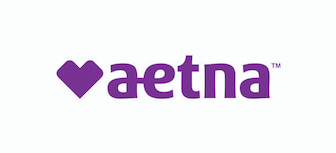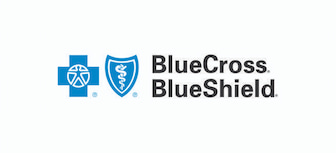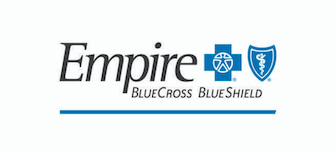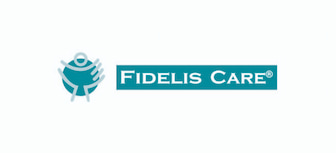What Are the Duties of a Urologist in Midtown Manhattan Who Takes Medicare?
A urology specialist is responsible for keeping your urinary system and pelvic health in check. Urological care is especially important for seniors because of the heightened risks of incontinence and prostate cancer. So use this directory to find a urologist in Midtown Manhattan who takes Medicare to address any kidney and pelvic organ problems.
Medicare ensures you get the urological services you need by facilitating access to the best urologists in Midtown Manhattan through your primary care physician.
Your Medicare benefits include coverage for:
- Essential diagnostic tests, such as urinalysis and PSA tests
- Urological treatments, from antibiotics to advanced surgical procedures
- Preventive healthcare with routine checkups and screening
Medicare bridges the gap to quality healthcare by removing the financial burden that comes with many advanced treatments and procedures. Book an appointment with a Midtown Manhattan urologist who takes Medicare to get solutions to your urological healthcare concerns.
When Should I Schedule an Appointment with a Medicare Urologist in Midtown Manhattan?
Once you qualify for Medicare, you’re at risk for certain age-related health concerns, including those associated with your urinary system and pelvic organs.
To get the most out of your health insurance, book an appointment with a Midtown Manhattan urologist who takes Medicare if you experience:
- Blood in your urine
- Burning sensations when urinating
- Pain in your pelvic area
- Pain in your testicles
- Unusually frequent urges to urinate
For urgent issues that warrant an emergency urologist consultation, like testicular torsion, you can skip your primary care doctor and schedule a visit with a urology specialist directly. As a senior, you also need to see your urologist periodically for preventive care, such as a prostate screening. Additionally, postmenopausal women may need urodynamic testing to check for bladder issues and incontinence.
What Conditions Does a Midtown Manhattan Urologist Who Takes Medicare Treat?
Your urologist is trained to handle all kinds of issues that affect your urinary and pelvic organs. This specialist handles not only minor irritations like a urinary tract infection (UTI), but also life-threatening developments like bladder cancer.
Your Medicare urologist in Midtown Manhattan offers treatments for:
- Bacterial infections of your urethra or bladder, also known as UTIs
- An overactive bladder that causes unusually frequent urges to urinate
- Kidney stones, which are hard mineral deposits in your kidneys
- Prostate gland enlargement, commonly seen in men who are 50 or older
- Urinary incontinence, which causes urine leakage mostly in postpartum mothers and seniors
- Urethral stricture, a congenital defect that forms a narrowed urethra
- Erectile dysfunction, causing the inability to attain or maintain an erection, mostly in older men
- Pelvic organ prolapse, a shift in the position of pelvic organs, mostly in postmenopausal women
- Urological cancers, including prostate, bladder and kidney cancers
Your urology specialist offers relief from your symptoms and ongoing care for complex conditions. Schedule an appointment with a urologist in Midtown Manhattan who takes Medicare to deal with these issues.
What Treatments Are Available from a Medicare Urologist in Midtown Manhattan?
Medicare covers a wide array of urology services to support your health. Your urologist deploys different treatments, depending on your diagnosis. A simple UTI only requires antibiotics, while a complex cancer require advanced treatment.
Your urologist chooses the most appropriate form of treatment, including:
- Diagnostic services, including urinalysis, ultrasound, biopsy or cystoscopy for assessing your bladder
- Preventive healthcare, such as PSA screening for prostate health, bladder function tests and other necessary tests
- Medications, such as antibiotics for infections or alpha-blockers to shrink an enlarged prostate
- Minimally invasive procedures, including lithotripsy to break down and extract kidney stones, which provide convenience, less trauma and faster healing
- Surgery, when needed as the last resort treatment, including cystectomy and nephrectomy
Manhattan is a hub for world-class healthcare facilities and the best urologists in Midtown Manhattan. Medicare provides access to the latest innovative procedures, such as robotic prostatectomy, without worries of an unbearable financial burden. Whether you need quick relief or ongoing care, Medicare covers all medically necessary urological services. Get affordable urology care in Midtown Manhattan with Medicare.
What Can I Expect During a Visit to a Midtown Manhattan Medicare Urologist Who Takes Medicare?
Carry your Medicare ID for verification of your coverage at your first visit to a Midtown Manhattan urologist who takes Medicare. Expect a detailed interview to help your chosen urologist understand your health concern. The urology specialist asks about your symptoms and your medical history.
Your consultation also involves:
- A physical exam
- Possible diagnostic tests, such as blood tests, ultrasound imaging and urodynamic testing for bladder function
- A treatment plan that addresses your condition
- Treatment procedures according to the plan
- Follow-up visits scheduled to monitor your progress
Medicare supports a coordinated care approach so you can expect your urologist to communicate with your primary care physician, especially if you require ongoing care. Your Medicare plan keeps everyone involved in your healthcare updated after every visit or procedure.
What Questions Should I Ask My Urologist in Midtown Manhattan Who Takes Medicare?
A proactive approach helps you get the most out of your Medicare plan. Ask your doctor questions to get clarity about your condition, the urology tests and the treatment plan. Understanding what your urologist does also gives you confidence in the process.
Questions to consider asking include:
- What does this test show and how accurate is it?
- What are my treatment options and the risks involved?
- How soon can I expect to see results?
- How long will my recovery take?
A trained urologist seeks comprehensive solutions for your urinary and pelvic problems. Whether you have a nagging pain in the pelvic area or a burning sensation when urinating, you need quick, appropriate intervention. Medicare supports your access to healthcare by connecting you to the best urologists in Midtown Manhattan. Book an appointment with a Midtown Manhattan urologist who takes Medicare for comprehensive solutions to your urological health concerns.


 My BestDoc
My BestDoc
 Future Appointments
Future Appointments
 Settings
Settings
 Sign out
Sign out










